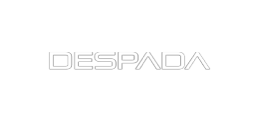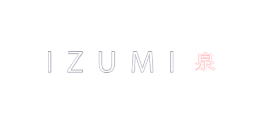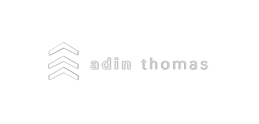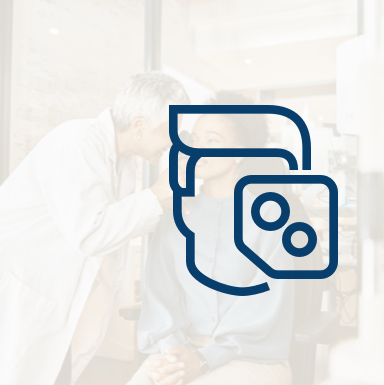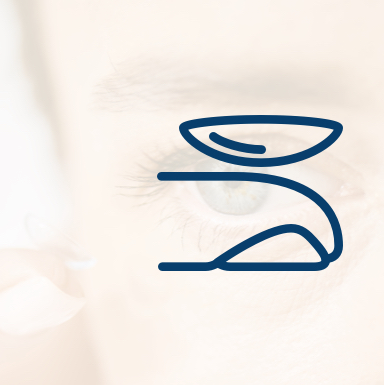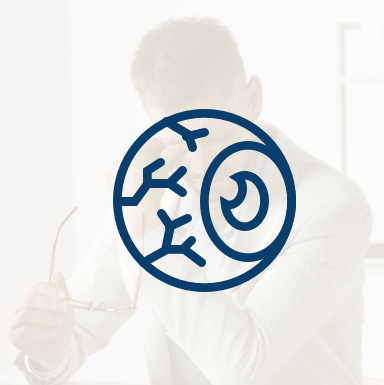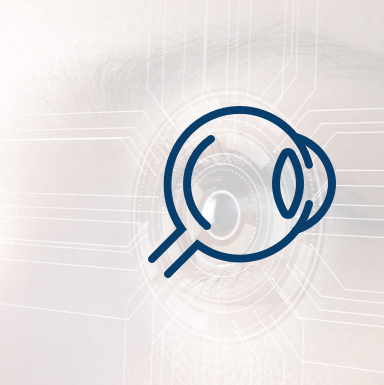Protect Your Eyes with Routine Eye Exams
We use our eyes every day. They’re our gateway to the world around us and are essential for how we interact and experience our lives.
Caring for your eye health can be as simple as visiting your eye doctor for routine eye exams. Eye exams involve noninvasive tests that go beyond checking your glasses prescription. We assess your overall eye health.
Our eye exams at Dr. David Oliphant Optometry are fully comprehensive. We even include optical coherence tomography (OCT) at no extra charge on all non-OHIP-covered eye exams.
Protect your vision today. Book an appointment.
When Should You Have an Eye Exam?
We recommend following the eye exam schedule suggested by the Canadian Optometric Association to help protect your eye health:
- Adults 20-39 should undergo an eye exam every 2 to 3 years.
- Adults 40-64 years should undergo an eye exam every 2 years.
- Adults over 65 should undergo annual eye exams.
Everyone is different. We may recommend a different schedule based on your particular vision needs.
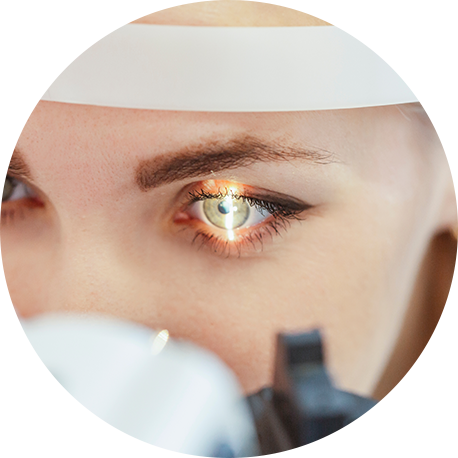

How to Prepare for Your Eye Exam
Here are a few tips to help you prepare for your eye exam.
- Gather some information. Make a list of any medications you take. Compile any past eyeglasses or contact lens prescriptions.
- We’ll also ask about relevant family history, including eye health concerns or medical conditions like diabetes. This will help your eye doctor get a complete picture of your health.
- Think about any vision changes you’ve experienced. Are you having trouble seeing near or far? Do lights have halos or glare? Noting these details can help your doctor tailor the exam to your needs.
Why Are Eye Exams Important?
Eye exams are preventive health care. They check your eyesight and overall eye health, and can even uncover systemic conditions, like high blood pressure, neurological conditions, or diabetes.
Eye exams are designed to detect sight-threatening eye diseases. Many eye diseases develop without noticeable symptoms and can cause irreversible damage before you even know you have a problem. About 75% of vision impairment is preventable with early detection and treatment.
What Is Involved in a Comprehensive Eye Exam?
Comprehensive eye exams are more in-depth than a sight test. We evaluate your visual system, including the essential communication between your eyes and brain.
Our eye exams are designed to address all aspects of your vision, from visual acuity to visual skills, to assess if your vision is healthy and working properly. A standard comprehensive eye exam involves several simple tests to evaluate your eye functions, structures, and overall health. If your exam is charged to your OHIP coverage, we do charge for your optical coherence tomography (OCT) scan.
This visual acuity test assesses your vision at short distances. Your close-up vision allows you to read, write, draw, work on a computer, and more.
Eye teaming, or binocular vision, refers to how your eyes work together. When eye teaming is faulty, you can experience various visual difficulties, including convergence insufficiency and poor depth perception.
Your eyes focus naturally to help you see at various distances. Rapid, automatic eye focusing is essential for reading, writing, learning, and playing sports. Poor focusing ability can cause blurred vision, headaches, eye fatigue, and visual discomfort.
Eye movement skills include eye muscle control, eye tracking, and eye coordination. These skills are essential for children and adults and contribute to eye-hand coordination, visual reaction time, and accurate movement tracking.
Using a slit lamp, ophthalmoscope, and OCT, we check your external and internal eye structures. We carefully look for signs of eye conditions, like dry eyes or digital eye strain, and eye diseases, like glaucoma and cataracts.

Book Your Eye Exam Today
Eye care is more than seeing clearly today—it’s about helping you preserve a bright, happy future. By scheduling regular eye exams, you’re helping to protect your eyesight and enhance your comfort.
Book your routine eye exam today at Dr. David Oliphant Optometry.
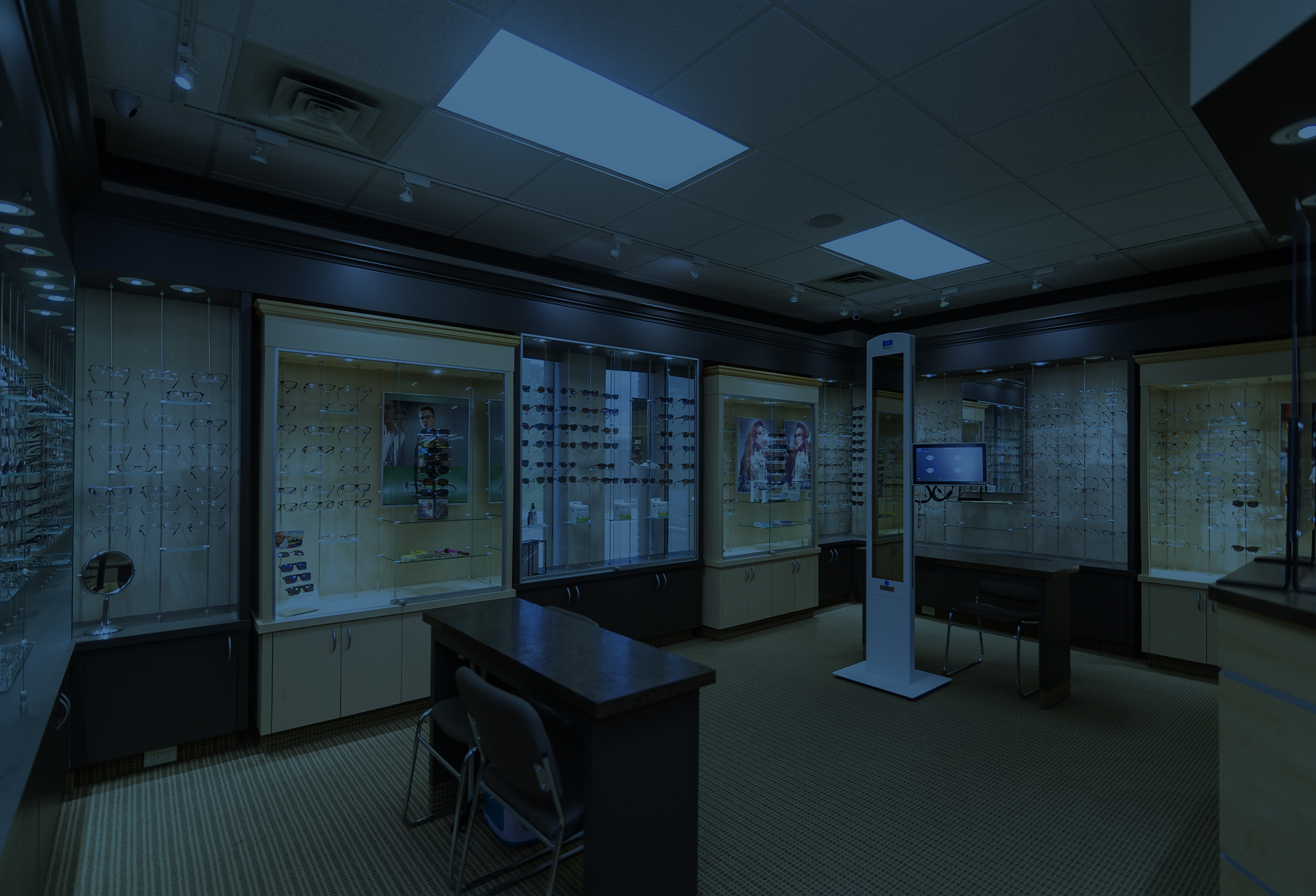
Come Visit Us
Our practice is located on the corner of Grand Avenue East and Woodland Avenue.
We have a large parking lot off Woodland Avenue with accessible parking and entrance.
Our Address
- 412 Grand Avenue East
- Chatham, Ontario N7L 1X1
Contact Information
- Phone: 519-354-5870
- Email: info@droliphant.ca
Hours of Operation

Our Brands
